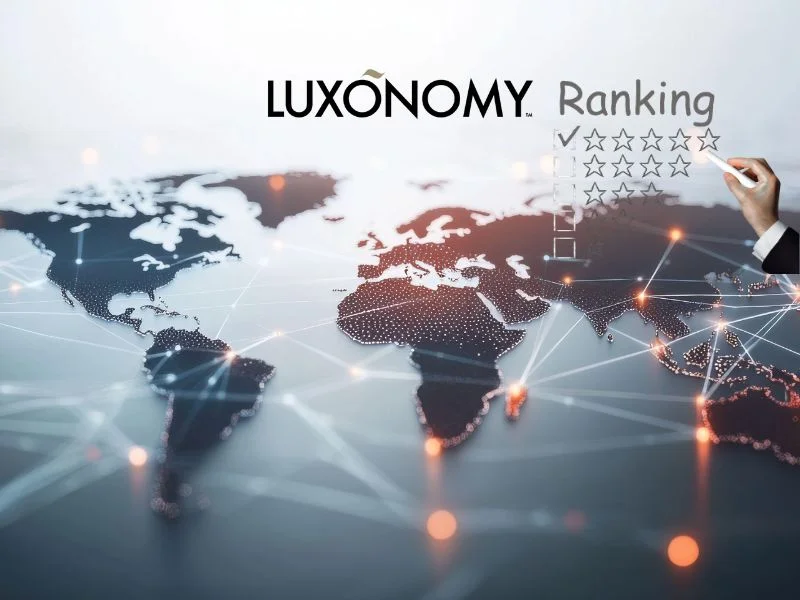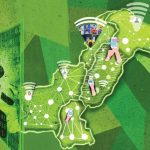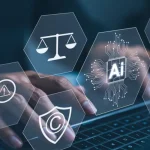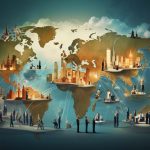In the modern world, power has evolved beyond politics and finance. Today, influence is the most valuable currency—and no one wields it better than celebrities who have merged their fame with technology. This fusion of entertainment, social media, and innovation has created a new class of global leaders. These are not politicians or diplomats; they are pop stars, actors, and tech visionaries who shape cultural and political discourse with a single post.
- Tech Entrepreneurs as the New Celebrities
- Political Leaders Turn Digital Influencers
- Artificial Intelligence and the Manufacturing of Fame
- The Merging of Entertainment and Activism
- Technology and the Globalization of Fame
- The Politics of Technology Companies
- Celebrities as Investors in the Tech Future
- The Ethics of Influence in the Digital Age
- FAQs
- Conclusion
The line separating Hollywood from Silicon Valley has disappeared. From Elon Musk hosting global live streams to Taylor Swift influencing voting campaigns, technology has democratized fame and politicized entertainment. In this new ecosystem, celebrity voices can sway elections, drive social reforms, and even move stock markets.
Tech Entrepreneurs as the New Celebrities
Once upon a time, celebrity meant red carpets and flashing cameras. Now, it means startup pitches and social media virality. Figures like Elon Musk, Jeff Bezos, Mark Zuckerberg, and Jensen Huang are as famous as movie stars. Their actions—whether launching rockets, announcing AI breakthroughs, or buying social media platforms—dominate global headlines.
These innovators have transcended corporate status to become cultural icons. Their every move is discussed, criticized, and celebrated worldwide. The cult of technology has turned them into symbols of ambition and rebellion. When Musk tweets, markets respond. When Bezos speaks, industries shift. This celebrity aura surrounding tech leaders reflects how deeply technology has penetrated human life.
Political Leaders Turn Digital Influencers
The digital revolution hasn’t spared world politics either. Heads of state and ministers now act like influencers, maintaining active social media presences and engaging directly with citizens. Former barriers between politicians and the public have fallen, creating unprecedented transparency—but also volatility.
Leaders from the U.S., India, and Europe now use live streaming, AI-curated data, and social engagement tools to gauge real-time public sentiment. Campaign rallies have turned into online movements where hashtags hold as much power as speeches. But this digital proximity also comes with risks: misinformation, polarization, and the erosion of fact-based discourse.
Artificial Intelligence and the Manufacturing of Fame
Artificial Intelligence has completely changed how fame is created and maintained. Streaming platforms and social media algorithms dictate who rises and falls in the cultural hierarchy. AI tools now decide what songs trend, which influencers gain visibility, and what political messages go viral.
The emergence of AI-generated celebrities—digital influencers that aren’t even real people—has added another layer to the conversation. These virtual personalities collaborate with brands, engage with fans, and even endorse causes. As AI-generated fame spreads, questions arise: Will humans eventually compete with artificial stars? How do we regulate influence that is created by code?
The Merging of Entertainment and Activism
The 2020s marked a global shift where celebrities became the torchbearers of activism. From climate change to women’s rights, from racial justice to humanitarian relief, public figures have embraced their platforms for advocacy. Technology has enabled this transformation by giving them direct, unfiltered access to billions of people.
When celebrities like Billie Eilish speak about environmental policies, or BTS promotes mental health awareness, their messages transcend entertainment—they shape public consciousness. In many countries, these figures have achieved what politicians could not: mobilizing youth around critical issues. The celebrity voice, once limited to art, now resonates in political chambers and international organizations.
Technology and the Globalization of Fame
Before the internet, fame was regional. A movie star in the United States might have been unknown in Asia. Today, thanks to social media, streaming platforms, and translation AI, fame is global. A TikTok creator in Seoul, a musician in Lagos, or a gamer in Brazil can reach millions across continents within hours.
This globalization of fame has created a shared cultural language. Trends born in one country quickly ripple across the world. Yet, this also blurs cultural identity. Critics argue that Western platforms still dominate global attention, subtly shaping global tastes, values, and politics through entertainment. The question remains: are we celebrating global diversity, or are we consuming a digitally standardized culture?
The Politics of Technology Companies
Tech giants are no longer neutral service providers—they are political entities. Platforms like X, Meta, and TikTok decide what information billions of people see. Their algorithms determine which political narratives thrive and which disappear. The CEOs of these companies have become global power brokers, influencing democracy, free speech, and global perception.
Recent debates around privacy laws, AI ethics, and censorship highlight this tension. Governments want regulation, while companies defend innovation. In between stands the user—caught between convenience and control. The intersection of tech power and global politics will define the next decade’s biggest policy battles.
Celebrities as Investors in the Tech Future
A growing number of global celebrities are investing heavily in technology startups. From sports legends funding AI-driven fitness companies to pop stars backing blockchain ventures, entertainment and entrepreneurship now move hand in hand. Rihanna, Ashton Kutcher, and Will.i.am have all entered the tech world, merging cultural capital with innovation.
This new breed of celebrity investor not only funds progress but also influences what kind of future we build. When an artist invests in green tech or mental health apps, they’re not just earning returns—they’re shaping social behavior and priorities through digital innovation.
The Ethics of Influence in the Digital Age
As the boundaries between fame, technology, and politics blur, ethics becomes a growing concern. Should influencers endorse political causes? Should tech moguls use their platforms to shape ideology? What happens when public opinion is manufactured by AI-generated content?
These are not hypothetical questions—they define the digital age’s moral frontier. The global community must now decide how to balance free expression with social responsibility. Transparency, digital literacy, and accountability will be vital in navigating this landscape where every tweet can change the world.
FAQs
How are celebrities changing the tech industry?
Celebrities are investing in startups, collaborating with AI platforms, and using technology to amplify activism, making them key drivers of innovation and awareness.
Why do politicians behave like influencers today?
Because digital engagement gives them direct communication with citizens, bypassing traditional media, and strengthening emotional connections with voters.
What are AI influencers, and why are they popular?
AI influencers are virtual digital personas created through artificial intelligence. They are popular because they can engage audiences without scandals or fatigue, offering perfect consistency.
Can technology control fame and culture?
Yes, algorithms decide visibility, trending topics, and content distribution—effectively shaping modern culture and celebrity hierarchies.
How do celebrities impact political and social issues?
Through global reach and emotional storytelling, celebrities bring awareness to complex issues, motivating public action and funding.
Conclusion
The 21st century is witnessing the rise of a new world order where fame, technology, and politics are inseparable. The celebrity is no longer just an entertainer; the tech innovator is no longer just a programmer; and the politician is no longer just a policymaker. Together, they form a triangular web of influence that defines the digital civilization we now inhabit.
From AI-driven stardom to political hashtags and global online activism, the world has entered a transformative phase where cultural authority rivals governmental power. The screens we carry in our hands are not just communication tools—they are instruments of global change.
QuickMobileTech.com continues to explore this powerful intersection where innovation meets identity and fame becomes the new frontier of influence.







